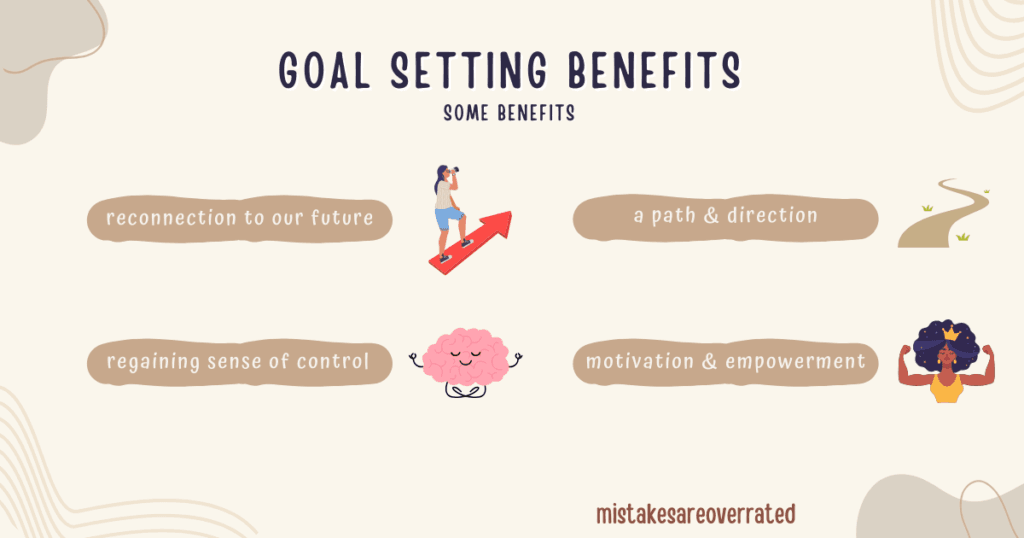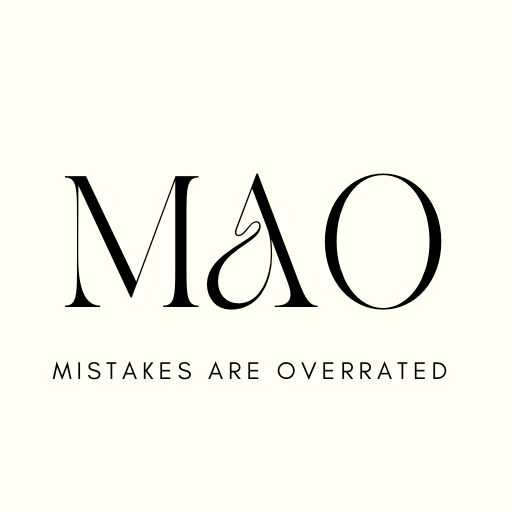
*content warning* please be advised this article contains discussion of trauma, feelings of hopelessness, goal setting and recommendation of deep internal work that may bring up some buried emotions and memories. please read at your own discretion.
healing from trauma is a deeply personal journey, one that requires patience, compassion and resilience.
a powerful tool we can use to support our recovery and life after trauma, is goal setting.
goal setting can help us regain control, give us a clearer direction in life and help track our progress during our healing process.
having goals can help reinforce our belief that healing is possible, whether it’s through smaller daily steps, or bigger aspirations for the future.
this article discusses how goal setting can positively impact our trauma recovery and help us rebuild direction and a sense of purpose.
don’t give trauma the power to control you, you deserve to live how you want. take control of your trauma.
-life advice from one survivor to another
why setting goals is important
setting goals in life is an important aspect for everyone, but it is an extremely beneficial tool when healing from trauma.
when we set clear and achievable goals, it can provide structure, foster hope and motivation, all while supporting our wellbeing and recovery.
sometimes, thinking about our healing process and what the future holds can overwhelm us, but this is when goals can become a useful tool for us.
they can offer clearer steps for us, making our journey seem more bearable or manageable.
after my traumatic experience, i felt i had lost control of myself and my life.
i no longer connected to my previous long term goals, dreams and ambitions.
i felt lost and confused to how my life could change so drastically from one event.
but setting new goals was vital in my trauma healing.
it helped me restore a sense of control, become optimistic about my future, provide direction, and boost my motivation.
(you may still have the same future plans for yourself after trauma, but in my circumstance, everything changed so i had to grieve my previous ambitions)
setting goals benefits
let’s see how setting goals can help us in our trauma healing journey.
please remember that trauma impacts everyone different, so how it effects one person may not be the same for you.
these 8 benefits are what helped me personally in my journey.

reconnect us with our future
sometimes trauma can take up so much of our energy, and space in our mind, that it becomes difficult for us to imagine a future.
when i felt lost and disconnected from myself, and ultimately at my lowest, i began self reflecting.
self reflection is a powerful tool we can use to help us reconnect with ourself, our passions, purpose, goals and future.
once we have gained a clearer understanding of our true authentic self, and what brings us joy and fulfilment in life, we can begin to set goals.
setting goals around our values and passions can help create a sense of hope and optimism.
one where when we think about our future, we can envision a life beyond the trauma we faced.
self reflection (can write in a journal) – take time to reflect on who you were, who you are now and who you wish to be.
(make sure to think beyond the obligations in your life (work, ect), as this can help you rediscover your passions and purpose)
regaining a sense of control
after experiencing trauma, the feeling of being in control of our lives can often be lost.
but setting and achieving goals can help us regain that sense of control back.
having goals can give us a clear direction and actionable steps to follow to achieve them.
it allows us to make choices that reflect our values, passions and purpose and empowers us to take ownership of our healing.
when we set goals and achieve them, it can remind us that we can infact regain control back in our lives.
you are the one that achieves your goals through your dedication and hard work.
you are the one helping you heal because of where you are placing your time and effort – these are decisions in your control.
providing a path and direction
having clearly set goals can offer us a framework for our recovery, almost like it’s a roadmap to helping us heal.
they can help us understand what we want to achieve, why we wish to achieve them and then how we can get there.
the impact of trauma can sometimes cause feelings such as overwhelm, disconnection or hopelessness.
these feelings can make it difficult for us to navigate through our daily life, but goals can help create structure and direction back into our life.
i like to think of my goals like a navigation map to a new place i am visiting.
i don’t know how to get there, but i know the address so i put it into my maps (address = my end goal)
the navigation then shows me how to get to the address (navigation = my smaller goals, steps and systems to reach my end goal)
motivation and empowerment
it’s no secret that achieving goals, no matter how “small”, makes us feel good.
this feeling of achievement can boost our motivation and empower us to continue to strive during our healing process.
we can increase our confidence by breaking down the process of our recovery into manageable goals and steps.
with each achievement, we prove to ourself that we are more than capable of healing and rebuilding our life, even on the harder days.

accountability and accomplishment
writing our goals down can help us stay accountable, as they aren’t just in our head, they’re actually out in the world where we can see them.
when we successfully reach our goals, it can remind us that we can achieve what we set our minds to and creates a sense of accomplishment.
this can help us form trust within ourself, reinforce positive behaviours and positively impact our overall wellbeing.
i find having a visualisation of my goals makes it harder for me to slack off or find excuses because i am looking at it (and just want to tick it off).
another benefit i found from having visual goals is the resilience it forms within.
for example, when i’m faced with an obstacle i can brainstorm ways to overcome it to reach my goal or make any necessary changes.
becoming trauma informed
whilst setting and reaching goals in our healing journey, we are more than likely to be faced with obstacles along the way.
this is completely normal and should not discourage us from beginning or continuing on.
this is when we can implement trauma informed goal setting.
being trauma informed means we acknowledge the impact of our past experiences so we incorporate self compassion and flexibility.
this helps ensure our healing is both effective and gentle, making sure we set realistic and compassionate goals.
please know that is is completely okay to adapt goals if needed, as trauma informed goals centre around our emotional safety during our process.
setting these goals in our healing journey is crucial, as trauma affects how we process emotions, approach challenges, self belief and decision making.
when we understand the impact trauma has on us, we can set goals that promote our healing and self care, whilst respect our emotional limits.
please don’t be too hard on yourself during this time of healing, the main point of trauma informed goals is to make progress at your own pace.
feel safe to communicate
clear goal setting can actually help us feel safer communicating to others and to ourself.
as goals can provide us a structured framework, or ‘road map’, and this can help us regain stability and trust.
there is a subliminal message to breaking down our healing process into manageable steps.
when we do this, we are creating a sense of control and progress which can help reduce our anxiety, overwhelm and fear.
and with this new clarity it can allow us to open up more freely, because we trust that we can express ourselves at a pace that feels manageable for us.
this feeling of safety and vulnerability may take time, so please go at your own pace and gradually rebuild confidence in your ability to communicate.
track our progress
one of the most obvious, but extremely important aspects of having set goals is, being able to track and obverse our progress.
this is why i push for us to write our goals down, as it is far easier to track something infront of us on paper, than if it were just in our minds.
progression is a big component in our healing journeys, as we should be striving to improve ourselves for the better.
tracking and reflecting on our progress can help us recognise our growth, identify patterns, build motivation and adjust our goals if needed.
we must provide ourselves the time and space to see how far we have come.
i found there were many goals i set that i didn’t even realise i had accomplished due to the fast nature of the world we live in.
but because i wrote my goals down, when i came back to them i was like “oh my gosh, i did that one – oh and that one!.”
please remember that healing is a continuous process.
it is not a destination, rather, it is a journey.
you are amazing 🤍
-mao
don’t give trauma the power to control you, you deserve to live how you want. take control of your trauma.
-life advice from one survivor to another

Leave a Reply